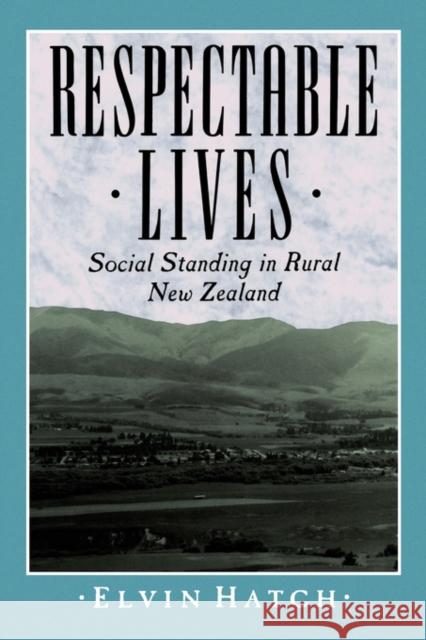Respectable Lives: Social Standing in Rural New Zealand » książka
topmenu
Respectable Lives: Social Standing in Rural New Zealand
ISBN-13: 9780520074736 / Angielski / Miękka / 1994 / 221 str.
Where do we get our notions of social hierarchy and personal worth? What underlies our beliefs about the goals worth aiming for, the persons we hope to become? Elvin Hatch addresses these questions in his ethnography of a small New Zealand farming community, articulating the cultural system beneath the social hierarchy.
Hatch describes a cultural theory of social hierarchy that defines not only the local system of social rank, but personhood as well. Because people define respectability differently, a crucial part of Hatch's approach is to examine how these differences are worked out over time. The concept of occupation is central to Hatch's analysis, since the work that people do provides the skeletal framework of the hierarchical order. He focuses in particular on sheep farming and compares his New Zealand community with one in California. Wealth and respectability are defined differently in the two places, with the result that California landholders perceive a social hierarchy different from the New Zealanders'. Thus the distinctive "shape" that characterizes the hierarchy among these New Zealand landholders and their conceptions of self reflect the distinctive cultural theory by which they live.










